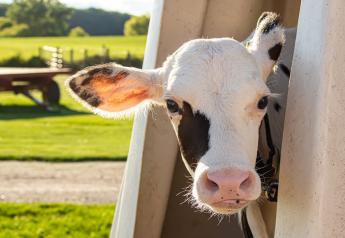How to Support Producers During Tough Times

Producers feel exhausted dealing with the highs and lows of the industry. Add in the current state of the dairy economy with low milk prices, high feed prices and factor in a drought blanketing many acres across the U.S., and it’s not too surprising that mental health is also impacting producers.
On a recent Minnesota Agriculture webinar, two presenters—Ted Mathews and Monica McConkey, both talked about how you can support producers during tough times.
Mathews shared that farmers are weighed down by the fear of the unknown.
“What is going to happen, but they're also looking at what will happen if I am not who I am, which is a farmer and farm family,” he says. “They fear that they're going to end their way of life. And that is a huge, huge factor for how they look at all of those things.”
Mathews shares that what happens next is the fear, anxiety and frustration all set in and their ability to cope with that and work with family and work through that becomes diminished.
“They have to learn how to take care of themselves by doing what they can,” he says. “When you look at mental health as mental illness, you're literally saying until I get to this breaking point.”
McConkey shares that there are warning signs that we can be on alert for, including:
- Isolation
- Mood changes
- Abrupt sales
- Disrepair
- Injury and illness
- Altered sleep patterns
- Increased substance abuse
- Lack of motivation
- Unpaid bills
- Hopelessness
- Family exhibiting stress
“If you just notice that things just are not getting done and that’s a change for them, it’s really time to check in,” McConkey says.
Follow up by sharing with the person what you're noticing and sharing your concern. McConkey encourages everyone to take the QPR (Question, Persuade and Refer) self-training.
“If you haven't taken a QPR safe talk training, by all means, find one and take it and it will increase your comfort level in working with folks who might be suicidal,” she says. “Farmers and Ranchers, we know that when they're stressed and they isolate, there are a chosen few people that can infiltrate that isolation.”
She also says that nutritionists, agronomists, milk truck drivers, veterinarians, and others who have more interaction with farmers need to be equipped to address mental health.
“To recognize warning signs and to be able to ask that question and give them the help they need,” McConkey says.
According to Mathews when people don't know what to do, they do nothing.
“Call the clergy, call a therapist, or someone from law enforcement,” he says.
Mathews says dairy farmers worry about the day they are no longer dairy farmers and often this impacts their mental health.
“Let's face it, most of us work regular hours, and oftentimes when a crisis happens, we're not available. So, who is available? The sheriff's department and they're well trained, and they go out right away so they can take care of situations immediately.”
Mathews encourages producers and industry professionals to get to know your local sheriff’s department and establish trust.
To listen to the entire webinar, click on: (328) Being There – Supporting Producers in Hard Times - YouTube
For more information on QPR training, click on: QPR Institute | Practical and Proven Suicide Prevention Training QPR Institute (en-US)
For more stories on mental health







